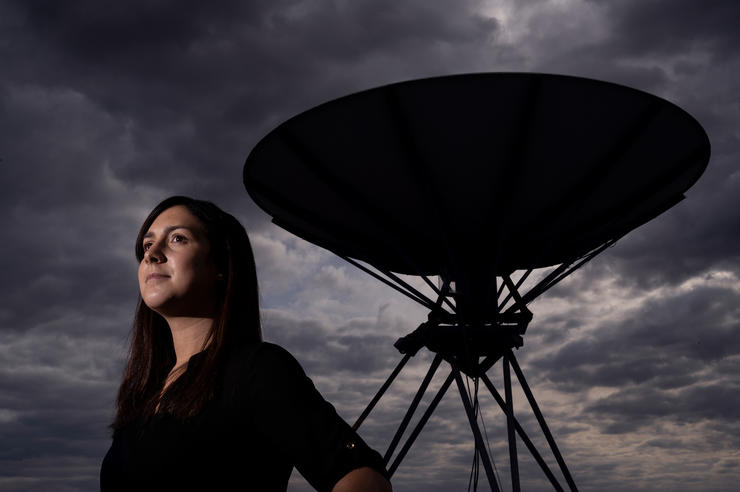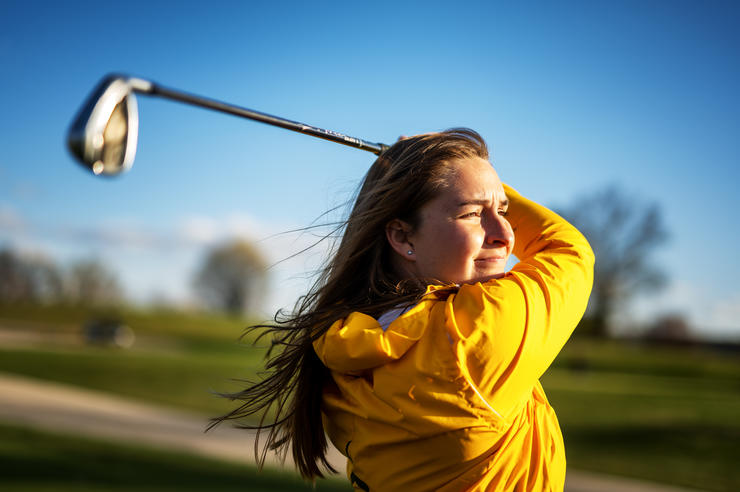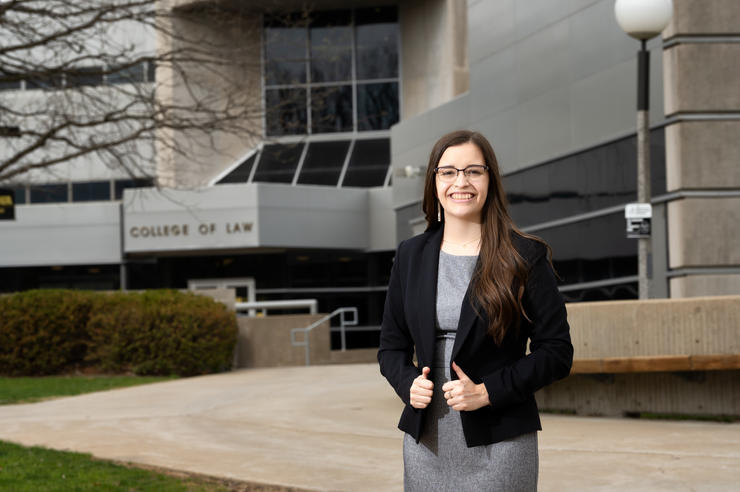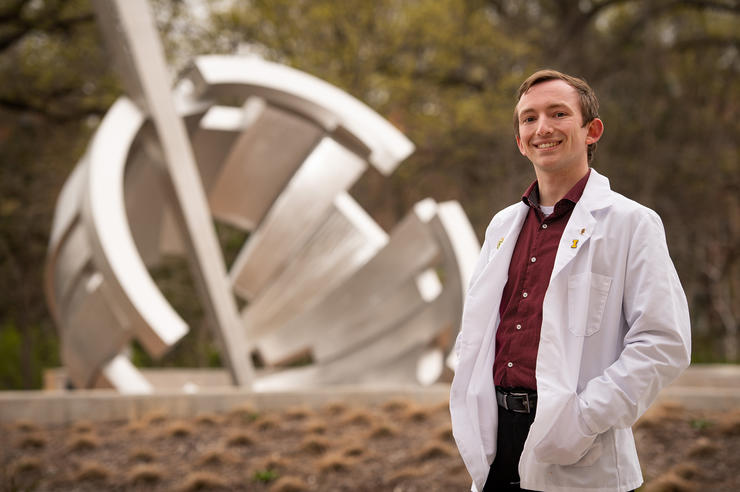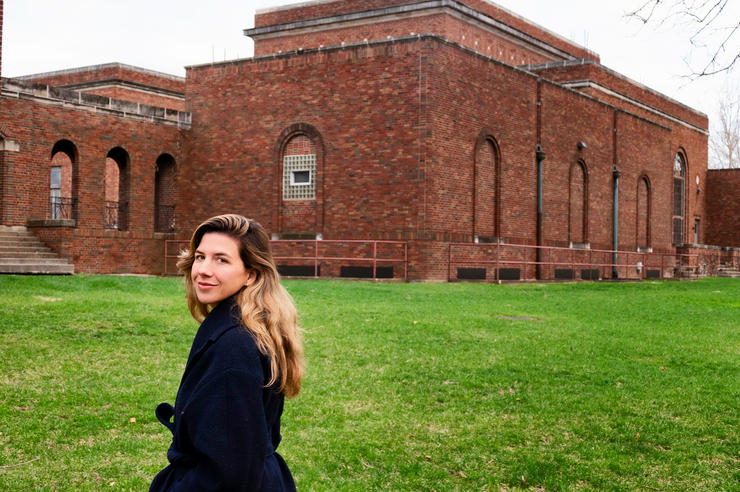Love of numbers fuels COVID-19 research
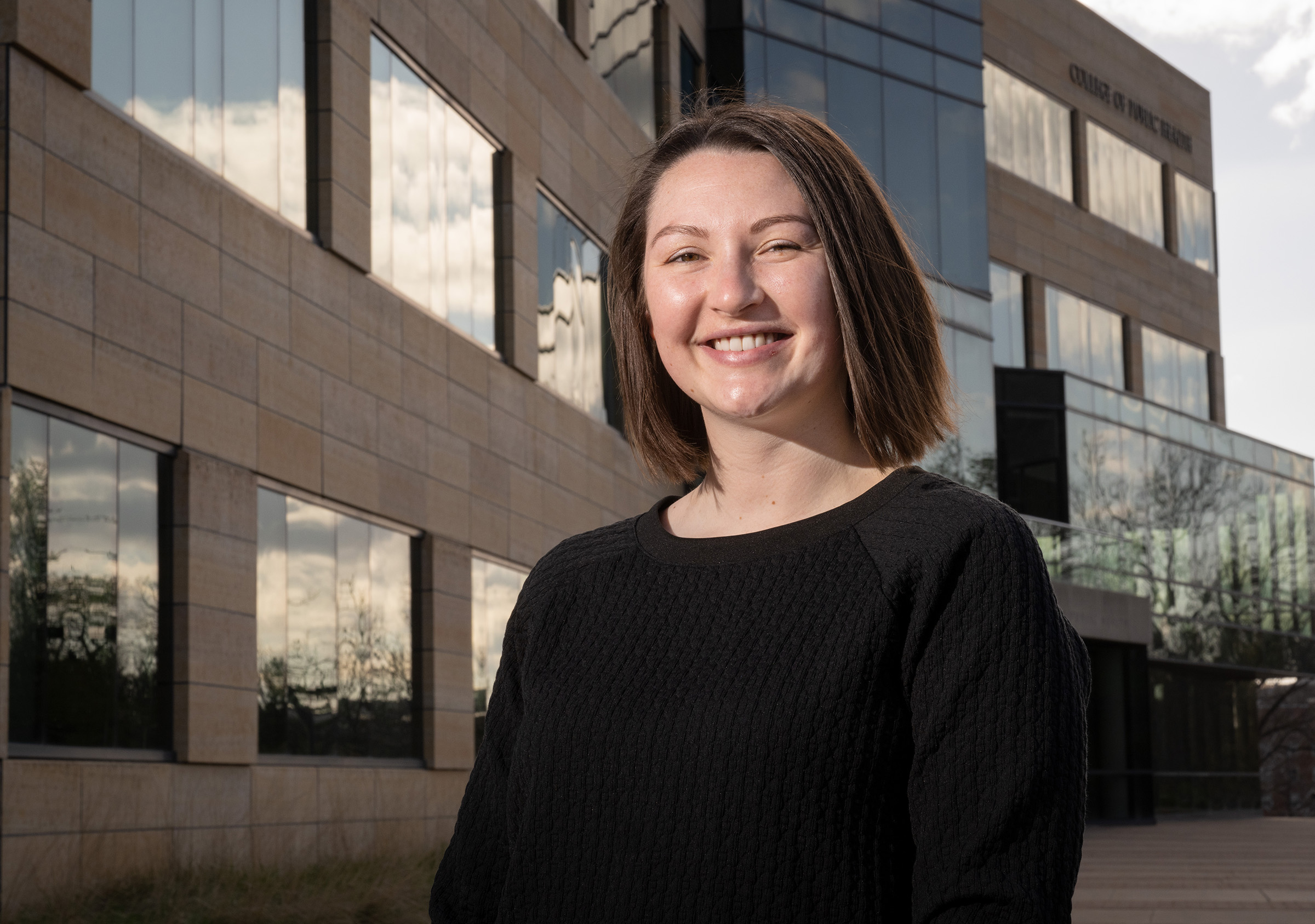
Degree: PhD in biostatistics
Hometown: Iowa City
Future plans: Postdoctoral fellowship at the University of Calgary, followed by a faculty appointment at a TBD college or university
A passion for calculus coupled with an interest in public health led Caitlin Ward to an area of research that could hardly be more relevant today: creating more realistic models of the spread of infectious diseases.
Ward, an Iowa City native earning a PhD in biostatistics from the University of Iowa in May 2021, chose the area of study well before “mask up,” “quarantine,” and “social distance” became part of our daily lexicon. She had planned to study biochemistry in college and conduct cancer research, but a high school calculus class intrigued her and drew her to math and statistics—and eventually to biostatistics. The pandemic has shown her just how crucial a biostatistician’s work is.
“While I chose infectious disease modeling because it was interesting to me, you feel the urgency when you’re in a pandemic,” says Ward, who earned a master’s degree in biostatistics from Iowa in 2018. “The timing of the predictions is very important. A lot of people are relying on these models, and it really emphasized to me the importance of what I’m doing. It’s not just tinkering around with my computer—there are real implications to this work.”
“Sometimes in graduate school you can encounter a really competitive or cutthroat environment, but I felt like our department was the complete opposite of that. It was very supportive and collaborative. You knew it was going to be challenging but also that we’d all get through it together. I feel very fortunate to have been part of that.”
In addition to completing her doctoral coursework, Ward has taught an introductory biostatistics course and contributed to the College of Public Health’s Biostatistics Consulting Center, where she performed analyses for researchers in a variety of disciplines, from brain imaging to nursing to student services.
Ward notched even more real-world experience in the summer of 2020 when she was part of a team of UI graduate students and faculty members assisting the Iowa Department of Public Health with COVID-19 modeling. She developed a web application to predict trajectories of coronavirus spread based on interventions such as mask mandates, and will build on that work during a two-year postdoctoral fellowship at the University of Calgary in Canada starting in August.
Ward says her campus experiences—and the biostatistics department in particular—have prepared her well for a successful career in academia once her fellowship is over.
“Sometimes in graduate school you can encounter a really competitive or cutthroat environment, but I felt like our department was the complete opposite of that. It was very supportive and collaborative,” she says. “You knew it was going to be challenging but also that we’d all get through it together. I feel very fortunate to have been part of that.”
Jacob Oleson, professor of biostatistics and director of graduate studies in the UI College of Public Health, says Ward is one of the most decorated students he’s seen at Iowa. Not only did she win the department’s teaching assistant award, research assistant award, and service award, she was recognized by the university’s Council on Teaching with a 2020 Outstanding Teaching Assistant Award.
On top of Ward’s accomplishments in the classroom—she is writing a textbook based on her experiences teaching the intro course—Oleson says she is a good communicator.
“A successful biostatistician will be able to listen to researchers about their data analytic needs, perform the required and requested analysis, and communicate back the results and meanings in appropriate scientific terms so that the researcher knows exactly what is going on,” Oleson says. “Caitlin sets herself apart because she is exceptional at all components of that task.”
- Biostatistics is a great area of study for students interested in math, statistics, and biology, and the University of Iowa offers multiple degree programs.
- Iowa’s biostatistics graduates land jobs in pharmaceutical, health care, and research companies and institutions; as consultants; at universities; and within government agencies.
- According to the latest U.S. News & World Report rankings, the UI College of Public Health is 20th among the nation’s top public health school—and 10th among public institutions.
Like Ward, biostatistics students at Iowa have opportunities to collaborate with researchers in multiple disciplines and perform a wide variety of data analytics techniques, giving them an advantage in the job market, Oleson says.
“Students hone their statistical skills, but also computational skills and especially communication skills,” he says. “Having that wide range of experience in being able to analyze data that came from real studies and in communicating results with the scientists, along with earning a graduate degree in biostatistics, keeps employers coming back for our graduates.”
Ward is excited to continue looking into COVID-19, work that could position public health officials to make better predictions in the future.
“The spread of infectious diseases is really complex, and the coronavirus pandemic has really exacerbated the challenges we face with statistical modeling. For example, many people are asymptomatic and may never be detected as a case. They’re never in any data set that we would come across, but they’re still able to transmit the disease,” she says. “I’m working on making models that are more realistic, while balancing that trade-off between realism and accuracy with model complexity and data limitations. While they aren’t specific to COVID-19, I think they’d be really applicable.”


